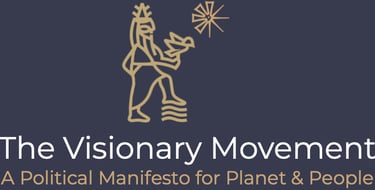The Right to Our Money: The Banks Challenge
Worrying restrictions imposed by banks on cash withdrawals represent a direct threat to the freedom and dignity of citizens. Our concerns are not abstract; they are real, urgent, and rooted in genuine experiences.
9/15/20253 min read


What Cash Withdrawal Restrictions Amount To
The issue at hand is simple: customers depositing their own money should be able to withdraw it when needed. Yet in 2025, I — like many others — encountered serious barriers when trying to make a legitimate cash withdrawal from my Nationwide Building Society account.
Instead of a smooth transaction, I was met with suspicion, delay, and obstruction. Though the funds were mine, access was treated as conditional. This experience is now the subject of a formal complaint lodged with the Financial Ombudsman Service (FOS), which has accepted the case, opened a reference, and is currently reviewing Nationwide’s records.
On paper, these restrictions are framed as “safeguarding.” In practice, they function as gatekeeping — preventing people from freely accessing their money, often without transparency or consistency.
Why We Take Issue With It
Financial control masquerading as protection
Banks claim these measures protect customers from scams. While protection is important, the reality is that paternalistic blocks and interrogations often cross the line into control.
Erosion of trust
When long-standing customers cannot access their savings without interrogation, trust collapses. Loyalty to financial institutions depends on confidence, and confidence depends on fairness.
Cash marginalisation
By making withdrawals difficult, banks nudge society towards a cashless system. Yet cash remains vital: it is immediate, private, and outside the surveillance of digital ledgers. Restricting it undermines personal sovereignty.
Lack of accountability
There are no clear, uniform rules. One customer may succeed in a withdrawal, another may be blocked, with decisions often appearing arbitrary. Without transparency, “safeguarding” becomes unchallengeable power.
At its heart, the problem is not vigilance. The problem is unchecked vigilance that sacrifices liberty at the altar of control.
What We’re Doing
The Visionary Movement is challenging these practices openly and lawfully. We have:
Filed a formal complaint with Nationwide demanding explanation and remedy.
Escalated to the Financial Ombudsman Service, ensuring independent review of Nationwide’s actions.
Documented all events, correspondence, and timelines to preserve evidence.
Shared this issue publicly, so the debate is not confined to closed complaint files but becomes part of national awareness.
Further escalation — including regulatory and legal action — remains on the table should remedies not be forthcoming.
Why We’re Doing It
The Visionary Movement exists to defend freedom, dignity, and justice. This issue touches the very core of those principles.
We are not against fraud prevention. In fact, we welcome banks protecting customers from genuine harm. But protection must be proportionate, transparent, and consensual.
Our concern is precedent. If banks can block cash withdrawals today, what might they block tomorrow? Could this lead to restrictions on how we spend, where we spend, or who we transact with?
The right to access one’s own money is fundamental. Without it, every other liberty is weakened.
What We’ve Achieved So Far
Even at this early stage, progress has been made:
Exposure: What began as an individual case is now part of a wider conversation about banking freedom in Britain.
Accountability: Nationwide must now submit its records to the Ombudsman, ensuring scrutiny rather than silence.
Public discourse: By raising awareness, we have reframed this as not just a “customer service” issue but a democratic rights issue.
Legal traction: A formal Ombudsman case is active, meaning there will be a written, binding assessment of Nationwide’s conduct.
These are small but significant checks on the unchecked power of financial institutions.
What Is Left to Accomplish
The road ahead includes:
Securing a fair Ombudsman decision that upholds the right of customers to access funds without arbitrary obstruction.
Pressing for clear, published standards on how banks manage withdrawal requests, removing inconsistency.
Safeguarding cash access at a national level, ensuring it remains a real option for all citizens.
Maintaining vigilance: banks and regulators alike must know that these practices are being watched, questioned, and challenged.
Legislative reform: beyond this single case, Britain needs enshrined protections for financial sovereignty.
Conclusion
The Nationwide case is more than a complaint. It is a test of whether banks serve customers or control them. The Visionary Movement has chosen to resist obstruction — not out of defiance, but out of duty.
We will continue this challenge with integrity, legality, and resolve. Already, we have forced transparency, demanded accountability, and opened the conversation. But the mission is not complete.
This struggle is not about one transaction. It is about freedom itself. And until financial institutions respect the basic right of people to access their own money, the Banking Challenge will remain one of the Visionary Movement’s most urgent calls to action.
GET IN TOUCH
SUBSCRIBE FOR UPDATES
WhatsApp: +44 (0)7413 47 46 48
© 2025. All rights reserved.


FOLLOW
Support the movement: Make a Donation
